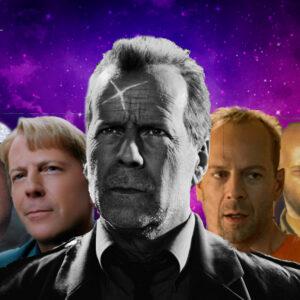Released in 2004, Wolfgang Petersen’s epic film Troy catapulted Homer’s ancient tale of the Trojan War to the big screen with a mix of breathtaking visuals, a star-studded cast, and a gripping narrative. Brad Pitt’s portrayal of the legendary warrior Achilles became iconic, but it is the subtle, enigmatic details within the film that truly captivate audiences and provoke deeper contemplation. In this article, we will delve into the five most mysterious and intriguing elements of Troy that continue to fascinate viewers.
1. The Enigmatic Character of Achilles
Brad Pitt’s portrayal of Achilles is both charismatic and complex, adding layers of depth to a character already steeped in legend. The film presents Achilles not merely as a formidable warrior but as a conflicted hero whose motivations and inner struggles are shrouded in mystery.
1.1 Achilles’ Motivations
Achilles is depicted as a hero driven by a desire for glory and immortality. His choice to fight in the Trojan War, despite knowing it will lead to his early demise, raises questions about his true motivations. The film hints at a deeper conflict within Achilles, one between his yearning for eternal fame and his personal desires and fears. This inner turmoil is subtly conveyed through his interactions with other characters, especially Briseis and his fellow warriors, leaving viewers to ponder the true nature of his quest for glory.
1.2 The Prophecy and Its Ambiguities
In Troy, Achilles’ fate is influenced by a prophecy predicting his early death. The film doesn’t explicitly detail the prophecy, adding to its mystique. The ambiguity surrounding the prophecy enhances the film’s dramatic tension and encourages viewers to consider the nature of destiny and free will. Achilles’ acceptance of his fate, while seemingly resolute, is imbued with a sense of uncertainty, making his character’s journey both tragic and enigmatic.
2. The Role of the Gods
In Homer’s Iliad, the gods play a significant role in the Trojan War, influencing events and manipulating the fates of mortals. However, Troy takes a more restrained approach to divine intervention, leaving much of the gods’ influence to the imagination.
2.1 Absence of Direct Divine Intervention
Unlike in the Iliad, where gods frequently interact with humans, Troy minimizes their direct involvement. Instead, the film uses subtle hints to suggest the presence of divine influence. For instance, the gods are represented through symbolic elements rather than physical appearances. This approach invites viewers to question whether the gods are actively shaping events or if their influence is more symbolic, reflecting the characters’ internal struggles and the overarching themes of fate and destiny.
2.2 Symbolic Representations
The film employs symbolic imagery to hint at divine presence. For example, the character of Paris, portrayed by Orlando Bloom, is often associated with the gods through his actions and decisions. His choice to abduct Helen, a catalyst for the war, can be seen as a reflection of divine will, even though the gods themselves are not directly depicted. This subtle approach adds a layer of mystery to the narrative, prompting viewers to consider the interplay between divine influence and human agency.
3. The Mystique of Helen of Troy
Helen of Troy, famously described as the face that launched a thousand ships, is a central figure in the film, yet her character remains enigmatic throughout. Her allure and the impact of her actions are portrayed with a certain mystique that deepens the film’s intrigue.
3.1 Helen’s Ambiguous Motives
Helen’s motivations are never fully explained in Troy. Her decision to leave her husband Menelaus for Paris is portrayed as both a personal choice and a catalyst for war. The film does not delve deeply into her internal struggles or her feelings for either Paris or Menelaus, leaving her character shrouded in mystery. This ambiguity enhances the dramatic tension and encourages viewers to interpret her actions in various ways, adding to the film’s complexity.
3.2 The Impact of Helen’s Beauty
Helen’s beauty is often cited as the reason for the Trojan War, but the film explores the concept of beauty as more than just physical attraction. Helen’s allure is portrayed as a symbol of power and influence, capable of shaping the fates of nations. The film’s treatment of her beauty adds a layer of mystique, suggesting that her impact extends beyond mere physical appearance and into the realm of destiny and divine will.
4. The Enigma of the Trojan Horse
The Trojan Horse is one of the most famous elements of the Trojan War, and in Troy, it is presented with a sense of mystery and awe. The film’s portrayal of this iconic strategy raises questions about its origins and the nature of deception in warfare.
4.1 The Origins of the Trojan Horse
In Troy, the Trojan Horse is depicted as a clever but morally ambiguous strategy employed by the Greeks to infiltrate the city of Troy. The film does not explore the exact origins of the Trojan Horse, leaving its creation and the full extent of its deception somewhat ambiguous. This lack of detail adds to the mystique of the Trojan Horse, allowing viewers to focus on its impact rather than its origins.
4.2 The Symbolism of the Trojan Horse
The Trojan Horse serves as a powerful symbol of deception and betrayal. Its use in the film underscores the themes of cunning and strategy in warfare. The film’s treatment of the Trojan Horse as both a physical object and a symbol of treachery adds depth to the narrative, inviting viewers to reflect on the nature of deception and its role in shaping the course of history.
5. The Fate of the Characters
The film’s portrayal of the characters’ fates adds a layer of intrigue and mystery. While Troy remains faithful to the broad strokes of Homer’s narrative, it presents the characters’ destinies in a way that prompts viewers to question the nature of fate and the consequences of their actions.
5.1 The Ambiguity of Fate
Troy presents the fates of its characters with a sense of ambiguity, particularly in the case of Achilles and Hector. While Achilles’ death is foreshadowed, the film’s portrayal of his final moments is both dramatic and open to interpretation. The ambiguity surrounding the fates of other characters, such as Hector and Paris, adds to the film’s mystique, encouraging viewers to consider the impact of their actions and the role of destiny in shaping their lives.
5.2 The Legacy of the Characters
The film concludes with a focus on the legacy of its characters, particularly Achilles. The final scenes emphasize the impact of their actions on future generations and the enduring nature of their stories. This focus on legacy adds a layer of mystery to the film’s conclusion, inviting viewers to reflect on the nature of fame and the lasting impact of individual choices.
Conclusion
Troy is a film rich with mystery and intrigue, offering audiences more than just epic battles and stunning visuals. The enigmatic elements of the film, from Achilles’ complex motivations to the subtle influence of the gods, contribute to its lasting appeal and provoke deeper contemplation. By exploring these mysterious details, we gain a greater appreciation for the depth and complexity of Troy, a film that continues to captivate and inspire viewers with its timeless tale of heroism, fate, and legacy.





